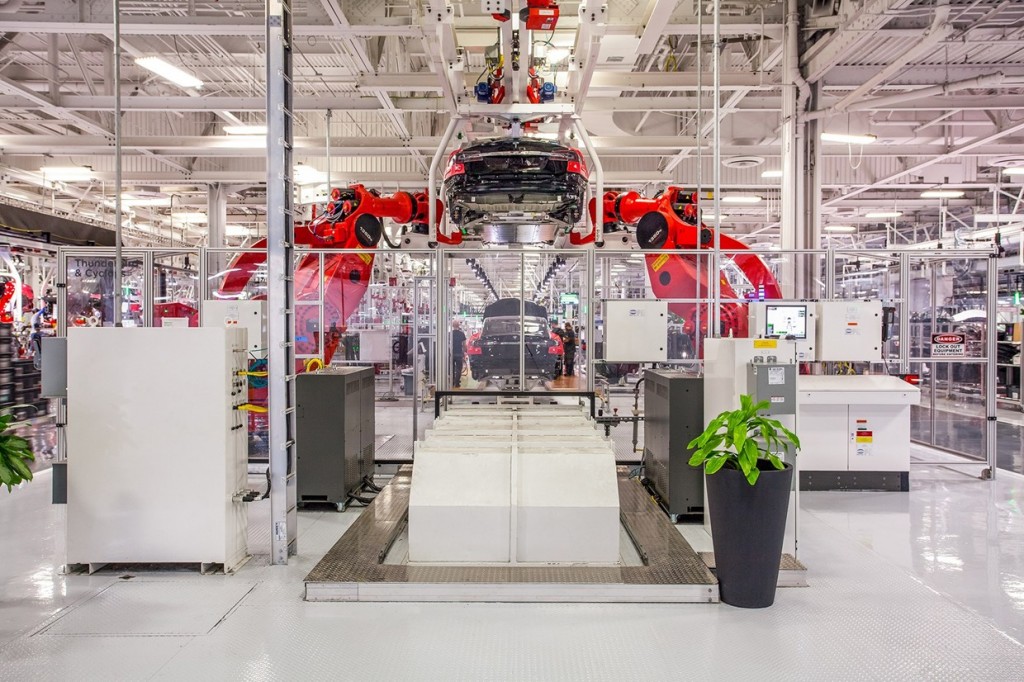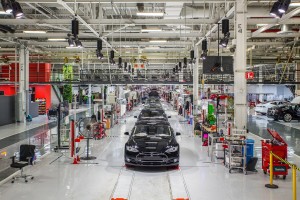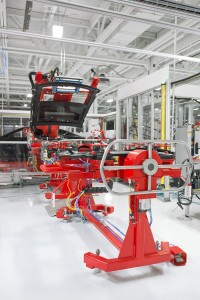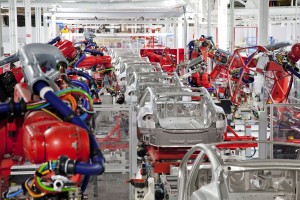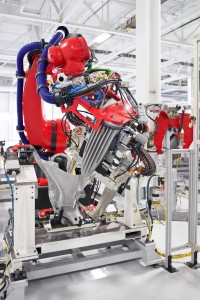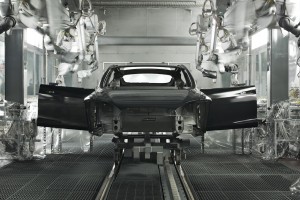Investor's Corner
Wired Takes a Tesla Factory Tour with Diarmuid O’Connell
Wired got a tour of the Tesla factory recently in the company of Diarmuid O’Connell, vice president of business development. The tour turned into a discussion of the core values that are the foundation of everything Tesla does.
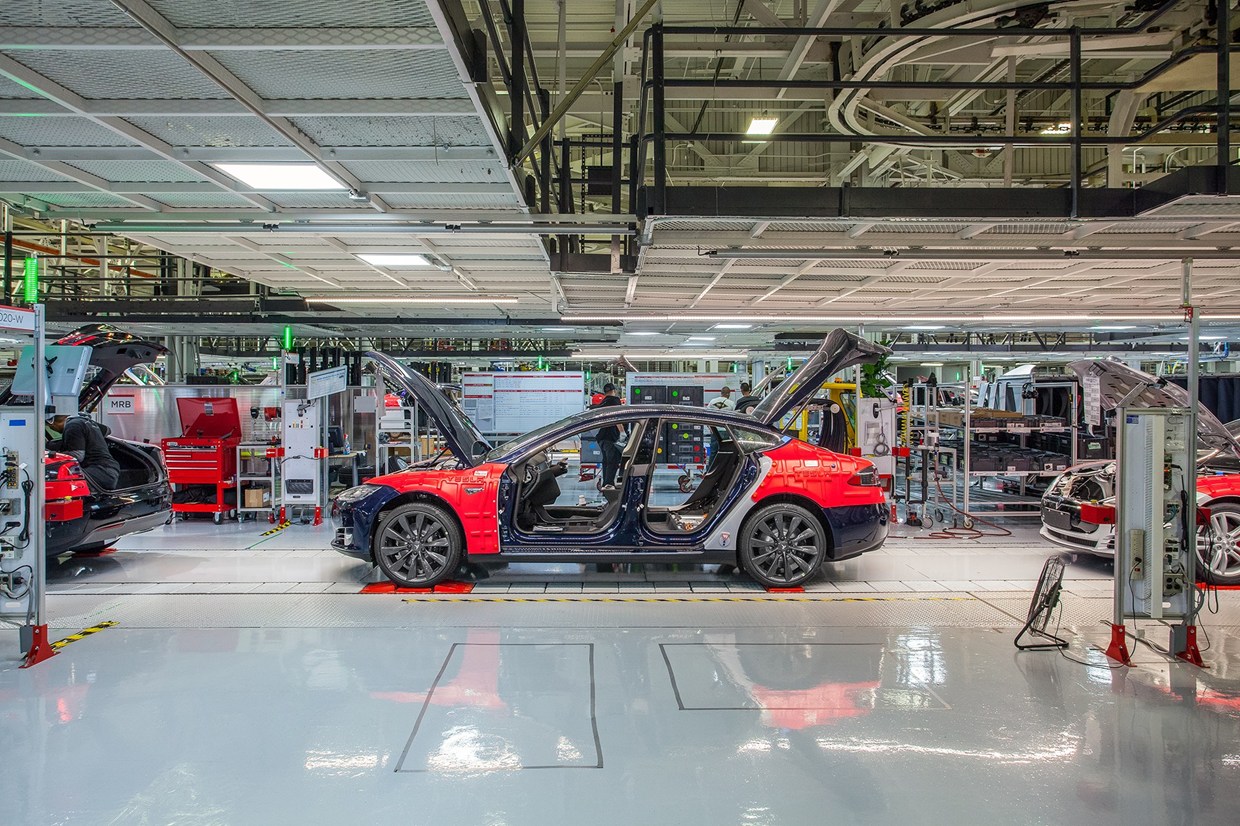
Wired UK editor Michael Rundle recounts his recent tour of the Tesla factory with Vice President of Business Development, Diarmuid O’Connell. What started off as a jaunt through the factory soon became a deep dive into the philosophy that underpins everything Tesla stands for.
O’Connell was the 50th person hired by Tesla and the first who was not a trained engineer. He is a firm believer in the gospel according to Musk, but he is far from the only one. As reported by Wired UK, one company staffer was overheard during the tour saying the company’s mission is to discomfort “petrodictators.”
O’Connell starts off by telling Rundle that Tesla is not in the business of making automobiles. “Tesla is in the business of inspiring competition. The more electric vehicles the better.” Then he adds, “It would be a fulfillment of our mission if the biggest manufacturer in the US put a mass-market EV on the road. We’re hopeful that they will and frankly that everyone else does.”
He suggests that Tesla is bent on securing the future of “sustainable transport” as a whole, not just making a profit. If it can establish that EVs are viable, more cars, more charging infrastructure, more battery research and development, more greening of the electrical greed, and a reduced dependence on foreign oil will follow, Tesla will make money. But if Tesla loses its bet on the future, not only will it fail, but the environment and the world will lose as well.
For those who criticize the company for being slow to get its products to market, O’Connell has an answer. “If we had been able to produce [the Model S] out of the box 12 years ago, we would have done so. We had no brand, no capital, no manufacturing base and no developed technology,” he says. “This is the classic technology introduction model that has led to the mass market for everything from air travel to cell phones. … This is how you do it if you’re starting from zero.”
Tesla relies too much on government subsidies and the sale of emissions credits, some critics charge. O’Connell has an answer for that too. The oil and gas industries receive “$2 trillion in global subsidies” every year, he points out, but he saves his most severe criticism for “the $25 billion R&D tax credit that Exxon Mobile and some of the other big American gasoline petroleum producers still enjoy 120 years into the development of that technology.” Why doesn’t the press talk about that, he wonders?
Asked about how autonomous cars and ride sharing may affect the environment going forward, he says, “I think what’s important is the emissions profile of any car, whether it’s shared or owned. Big or small. We’re trying to move as quickly as possible where the emissions profile of a vehicle is zero, and the emissions profile of the original electron going into the vehicle is as close to zero as possible.”
As Tesla expands its markets to other countries, it will source as many components as possible from local sources. That includes building more Gigafactories nearby, whether in Europe, China, Japan or any other country. Doing so is only common sense, he argues.
With all the buzz about the Chevy Bolt, new competition from Faraday Future, Atieva, NextEV, BYD and BAIC, O’Connell takes a “What have you done for me lately?” attitude. “The path of getting there — that’s the question. And the promise of doing something two- and three- and four years hence do not impress me,” O’Connell says. “People doing stuff now? That impresses me.”
Finally, O’Connell gets down the bottom line, the real nitty gritty, the foundation Tesla is built on. “[Y]ou also have to put on the table how are we as a society thinking about larger issues, and moving ourselves towards taking other than strictly market oriented actions, to deliver public health benefits,” he says. “Maybe survival [depends] on how you think about carbon intensity and the logical progression of too much carbon in our atmosphere.”
There a lot of people who think a social conscience is not the proper role of business. It’s not the capitalist model they teach in business school. Some would go so far as to say Tesla is foolish for letting such considerations as respect for the earth color its business plans and detract from the quest for profits.
Maybe so, but if you listen to Diarmuid O’Connell, who obviously gets his convictions from Elon Musk himself, someday in the not too distant future, we will find out who is foolish…..and who are really the fools.
Photo credits: Tesla

Elon Musk
Elon Musk clarifies Trump tariff effect on Tesla: “The cost impact is not trivial”
The U.S. President has stated that Elon Musk stayed silent and provided no input in the administration’s tariffs.

U.S. President Donald Trump’s plan to implement a 25% tariff on non-U.S.-made vehicles starting next week would affect American electric car maker Tesla.
This was confirmed by CEO Elon Musk in a recent post on social media platform X.
Musk and Trump
While Elon Musk works closely with the Trump administration due to his role in the Department of Government Efficiency (DOGE), the U.S. president has emphasized that the Tesla CEO never asks for favors. This was highlighted in his recent comments, when he stated that Elon Musk stayed silent and provided no input in the administration’s 25% auto tariffs.
When asked by reporters if the new tariffs would be good for Tesla, Trump noted that they may be “net neutral or they may be good.” The U.S. president also pointed to Tesla’s automotive plants in Fremont, California and Austin, Texas, which produce vehicles that are sold in the country. “Anybody that has plants in the United States — it’s going to be good for them,” Trump noted.
Tesla Affected
In a post on X, Elon Musk clarified that the Trump administration’s tariffs would affect the prices of vehicle parts that are sourced from other countries. This was a concern that Tesla previously outlined in a letter to the U.S. Trade Representative, which noted that even with “aggressive localization” of its supply chain, “certain parts and components are difficult or impossible to source within the United States.”
As per Musk in his recent post on X, the cost impact of the Trump administration’s tariffs is no joke. “To be clear, this will affect the price of parts in Tesla cars that come from other countries. The cost impact is not trivial,” Musk wrote in his post.
Potential Effects
Reactions to Musk’s comments from users of the social media platform were varied, with some speculating that the Trump auto tariffs could result in Teslas becoming more expensive in the United States. Despite this, the potential increases in Tesla’s vehicle prices might not be as notable as other cars, particularly those that are produced outside the country.
Investor's Corner
Financial Times retracts report on Tesla’s alleged shady accounting
“Turns out FT can’t do finance,” Tesla CEO Elon Musk quipped on X.
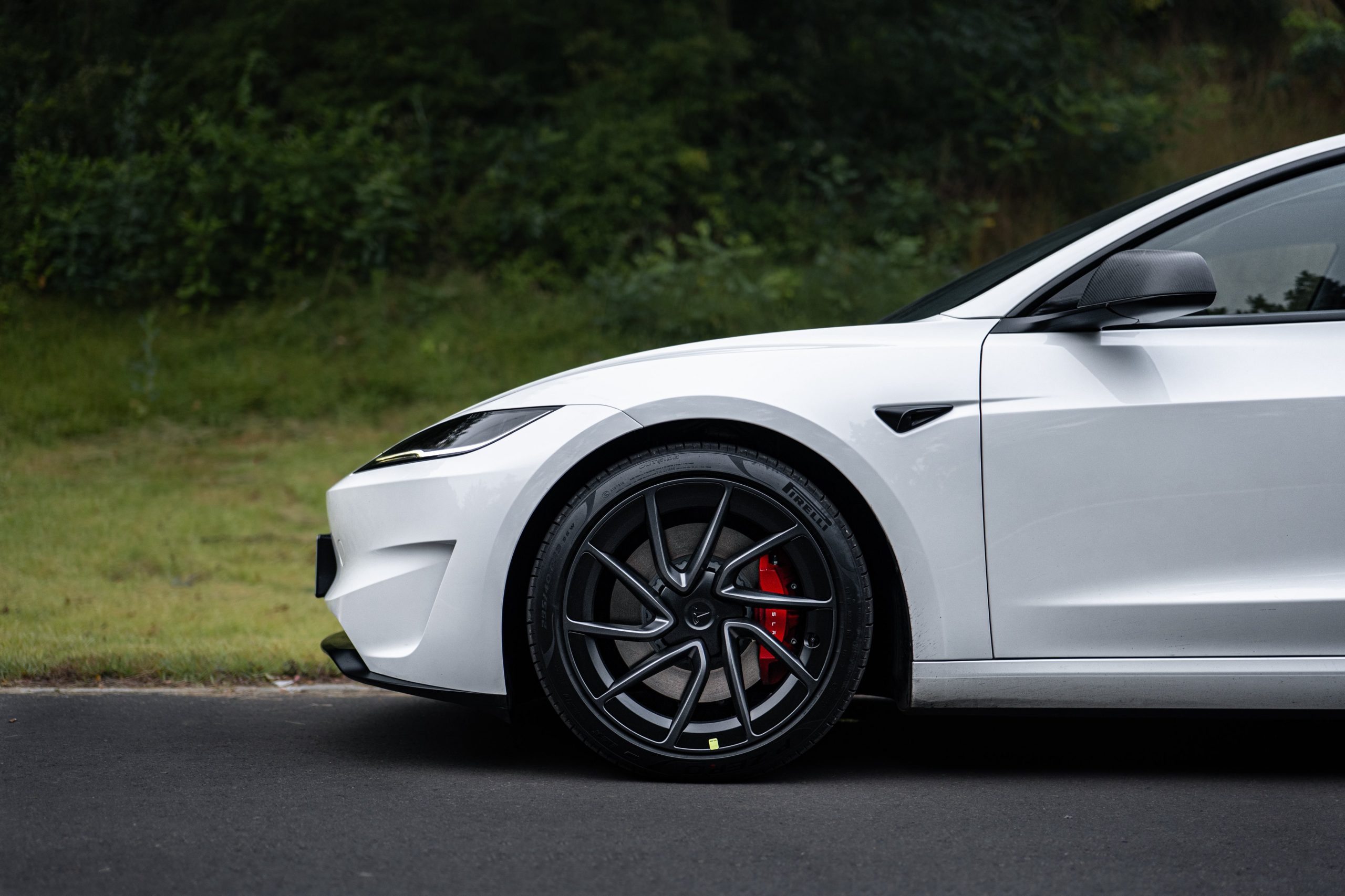
The Financial Times has issued a retraction for an article it recently published that accused the electric vehicle maker of shady accounting practices.
The FT’s retraction has been appreciated by the electric vehicle community in social media, though many highlighted the fact that the publication’s initial erroneous allegations have already been spread across numerous other media outlets.
The Allegations
In an article published on March 19, the Financial Times pointed out that if one were to compare “Tesla’s capital expenditure in the last six months of 2024 to its valuation of the assets that money was spent on,” “$1.4 billion appears to have gone astray.”
The FT article highlighted that Tesla reported spending $6.3 billion on “purchases of property and equipment excluding finance leases, net of sales” in the second half of 2024. However, in that period, the company’s property, plant, and equipment only rose by $4.9 billion. As noted by members of the r/Accounting subreddit, this appeared to be the basis of the FT‘s article, which seemed careless at best.
Unfortunately, the publication’s allegations were quickly echoed by other news outlets, many of which proceeded to accuse Tesla of implementing shady accounting practices.
The Retraction
In its retraction, the Financial Times explained that Tesla’s payments for assets already purchased and the possible disposal of depreciated property could help explain the alleged discrepancy in the company’s numbers. With these in consideration, the publication noted that the “crack we’re left with at Tesla is now small enough — just under half a billion dollars — to be filled with some combination of foreign exchange movements, non-material asset write-offs, or the sale of machinery or equipment close to its not-fully depreciated value.”
“As we sound the Alphaville bugle while lowering this particular red flag, one unavoidable conclusion is that at a certain point it’s necessary to trust the auditor’s judgment,” the publication noted.
Tesla CEO Elon Musk has responded to the Financial Times‘ retraction, commenting, “Turns out FT can’t do finance” in a post on social media platform X.
Elon Musk
Canaccord reaffirms Tesla’s price target of $404 after Giga Texas visit
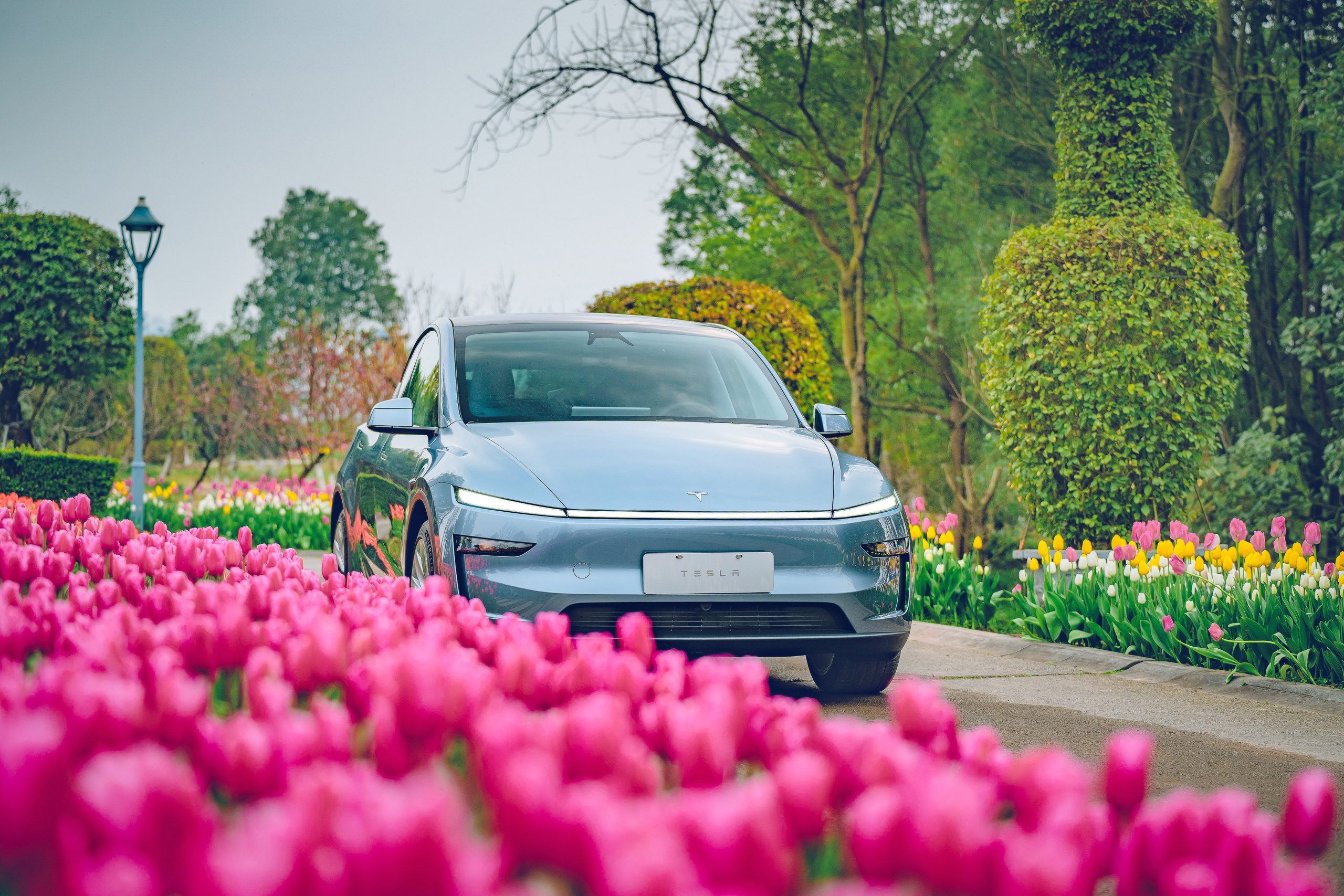
Canaccord Genuity reaffirmed its price target of $404 for Tesla after a visit to Gigafactory Texas. The investment firm sees an optimistic future for Tesla in the long term despite near-term headwinds.
Canaccord analysts reiterated its “Buy” rating for TSLA stock and revised Tesla’s Q1 2025 delivery estimates from ~331,000 vehicles to ~362,000 units. The firm’s first-quarter delivery estimates for Tesla reveal its optimistic take on the company’s future, even though it is still below the consensus estimate of ~417,000 vehicles.
“Our estimate is informed by our opinion that some consumers are delaying vehicle purchases to access the new Model Y and 4Q24 earnings call commentary regarding Model Y-related factory retooling limiting production…We wonder whether purchase decision delays and production limitations are being misinterpreted as halted overall momentum for Tesla. While we do suspect there has been some macroeconomic/brand impact, we, again, do estimate 1Q25 deliveries are mostly being impacted by supply constraints–as well as some demand factors,” Canaccord Genuity noted.
Canaccord analysts recently visited Tesla Giga Texas and left with optimism for the American electric vehicle (EV) maker.
“It’s hard not to be impressed with how future-forward Tesla is–whether it’s vehicle design or manufacturing. Consistently rethinking the status quo,” Canaccord Genuity analysts commented.
Analysts highlighted Tesla’s progress with Full Self-Driving, specifically version 13.2.8. They noted that Tesla’s unboxed manufacturing strategy would boost production efficiencies. Canaccord Genuity analysts also mentioned that Tesla’s robotaxi services will launch in Austin in the summer.
“For investors with duration and grit, there is a silver-linings playbook,” the Canaccord Genuity analysts concluded.
Canaccord Genuity reflects Elon Musk’s recent stock market advice during the Tesla All-Hands keynote. Musk advised investors to invest in companies with products they love, highlighting that Tesla has a few great products and will continue to launch more.
“Tesla stock goes up and goes down, but actually, it’s still the same company,” Musk noted.
-
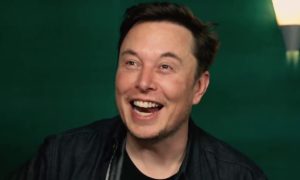
 Elon Musk2 weeks ago
Elon Musk2 weeks agoElon Musk roasts owners of this car brand after another Tesla vandalism incident
-
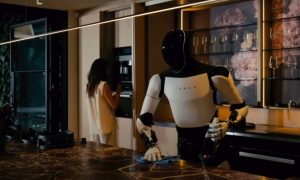
 News1 week ago
News1 week agoTesla aiming to produce first “legion” of Optimus robots this 2025
-
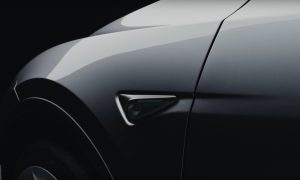
 Elon Musk1 week ago
Elon Musk1 week agoElon Musk confirms two measures Tesla is taking to fight vandalism
-
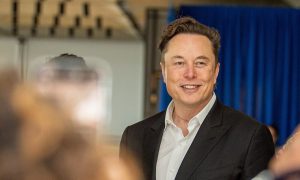
 Elon Musk3 days ago
Elon Musk3 days agoTesla CEO Elon Musk’s simple message to vandals
-
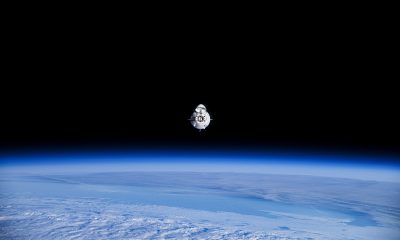
 News2 weeks ago
News2 weeks agoSpaceX rescue mission for stranded ISS astronauts nears end — Here’s when they’ll return home
-
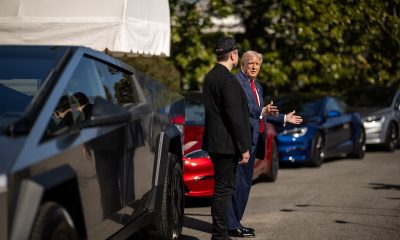
 News2 weeks ago
News2 weeks agoU.S. AG Pam Bondi: Tesla Molotov attack suspect facing up to 20 years in prison
-
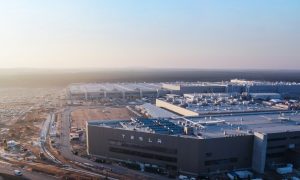
 News5 days ago
News5 days agoTesla’s Giga Berlin director responds to anti-Musk criticism
-
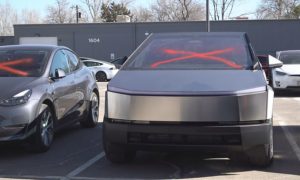
 Elon Musk1 week ago
Elon Musk1 week agoTesla owners doxxed by controversial anti-DOGE website in clear intimidation tactic
